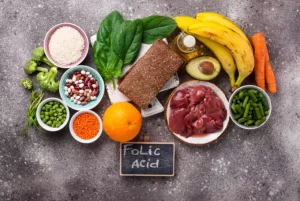As we navigate through the busy and demanding phases of life in our 30s and 40s, maintaining a high energy level becomes crucial to keep up with our responsibilities and enjoy life to the fullest. While many factors influence our energy level, one secret weapon that can significantly impact our vitality is protein. In this article, we will explore the role of protein in boosting energy level and discover how to incorporate it into our daily routines to maximize its benefits.
Understanding the Link Between Protein and Energy
Protein, one of the three essential macronutrients alongside carbohydrates and fats, plays a vital role in numerous physiological processes. When we consume protein-rich foods, our bodies break down the protein into amino acids, which act as building blocks for various tissues and enzymes. These amino acids are involved in repairing and maintaining body tissues, supporting the immune system, and regulating hormones—all of which influence our energy level.
Protein for Sustained Energy Levels
Unlike the quick energy spikes and crashes associated with high-sugar foods, protein provides sustained energy. It slows down the absorption of carbohydrates, preventing rapid spikes in blood sugar levels and subsequent crashes, which often leave us feeling tired and lethargic. By combining protein with complex carbohydrates and healthy fats, we create balanced meals that release energy gradually, supporting stable energy level throughout the day.
How to Increase Your Energy Level with Protein
Here are some ways in which you can boost your energy levels through protein intake:
-
Start with a Protein-Rich Breakfast
Kickstart your day with a protein-packed breakfast. Opt for options like Greek yogurt with nuts and berries, scrambled eggs with vegetables, or a protein smoothie to fuel your morning and enhance focus.
-
Choose Lean Protein Sources
Incorporate lean protein sources like chicken, turkey, fish, tofu, and legumes into your meals. These options provide essential nutrients without excessive saturated fats, promoting better overall health.
-
Snack Smartly
Instead of reaching for sugary snacks that lead to energy crashes, choose protein-rich snacks like mixed nuts, yogurt, or hummus with veggies. These snacks sustain energy levels between meals.
-
Power Up With Protein Shakes
Protein shakes or smoothies are convenient and effective ways to increase protein intake. Blend protein powder with fruits, vegetables, and milk or a plant-based alternative for a nutritious and energizing drink.
-
Balanced Meals
Aim to create balanced meals with a combination of protein, complex carbohydrates, and healthy fats. This equilibrium optimizes energy level and supports overall well-being.
How to Boost Energy Levels Naturally
In addition to incorporating protein into your diet, several lifestyle practices can further enhance your energy level:
-
Stay Hydrated
Dehydration can lead to fatigue and reduced alertness. Drink enough water throughout the day to stay energized.
-
Regular Exercise
Engaging in regular physical activity boosts circulation and oxygen flow, resulting in increased energy and reduced stress.
-
Adequate Sleep
Prioritize quality sleep, aiming for 7-9 hours each night to recharge your body and mind.
-
Stress Management
High-stress levels can deplete energy. Practice relaxation techniques such as meditation, yoga, or deep breathing to manage stress effectively.
-
Limit Caffeine and Sugar
While caffeine and sugary foods may offer temporary energy boosts, they can lead to crashes later. Consume them in moderation.

Conclusion
Discovering the secret to high energy level in your 30s and 40s lies in uncovering the power of protein. By prioritizing protein-rich foods in your diet and adopting healthy lifestyle habits, such as staying hydrated, exercising regularly, getting enough sleep, and managing stress, you can experience a significant improvement in your energy level. Embrace the power of protein and enjoy a vibrant and energetic life as you navigate through the demands of your busy days.


